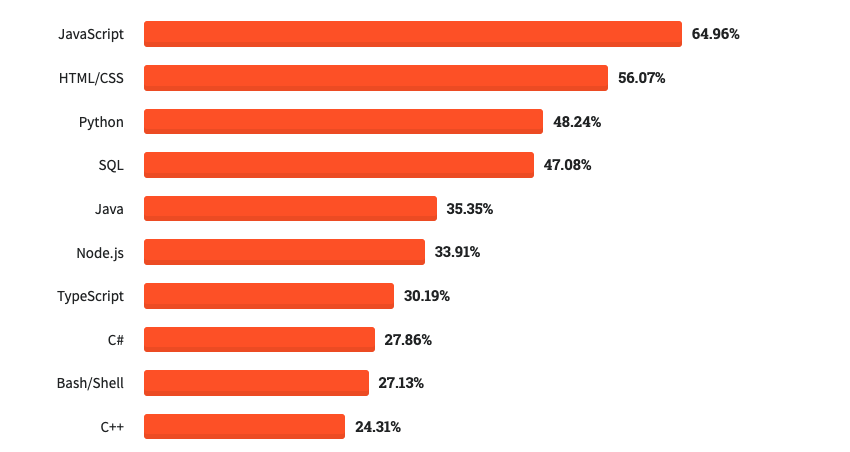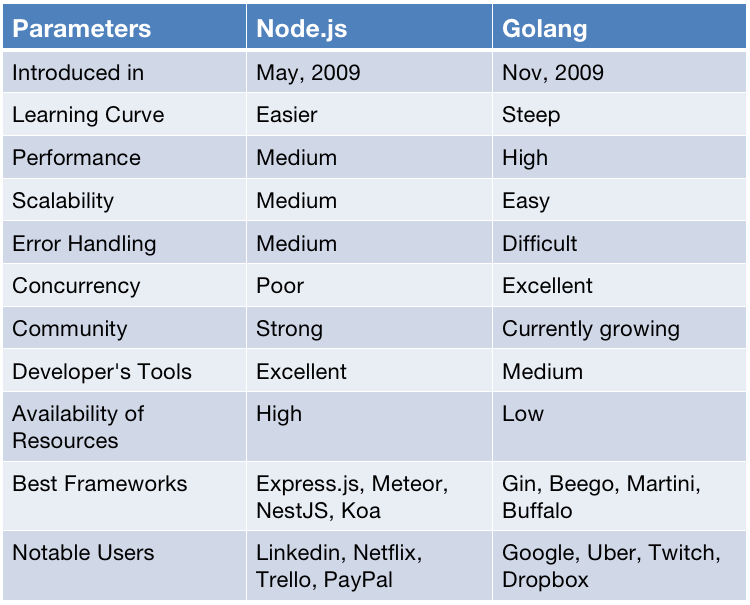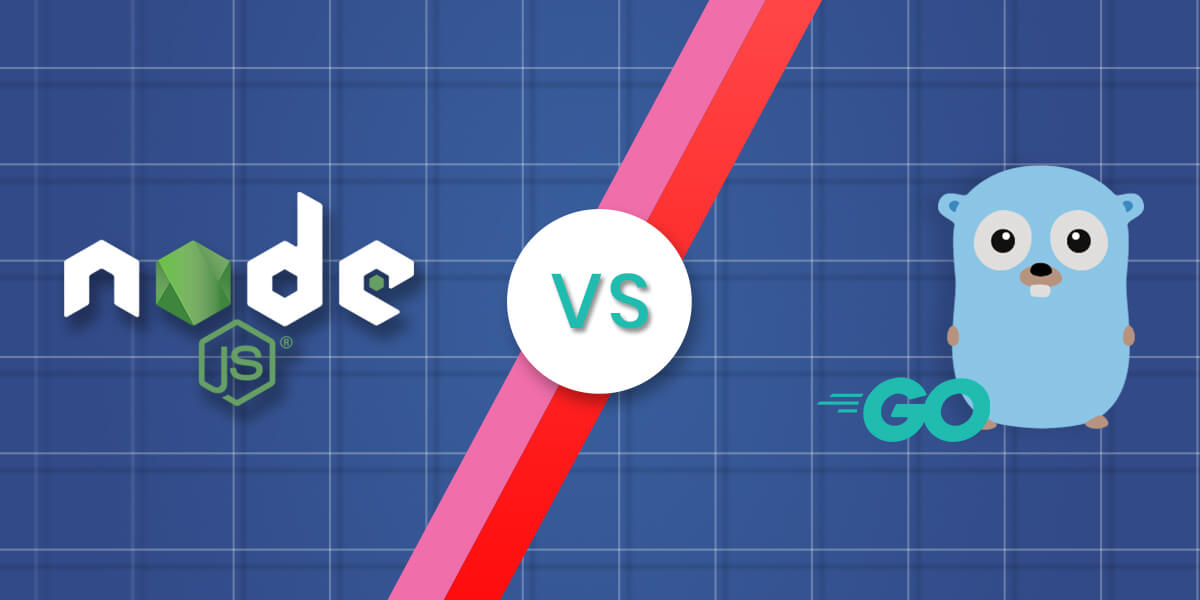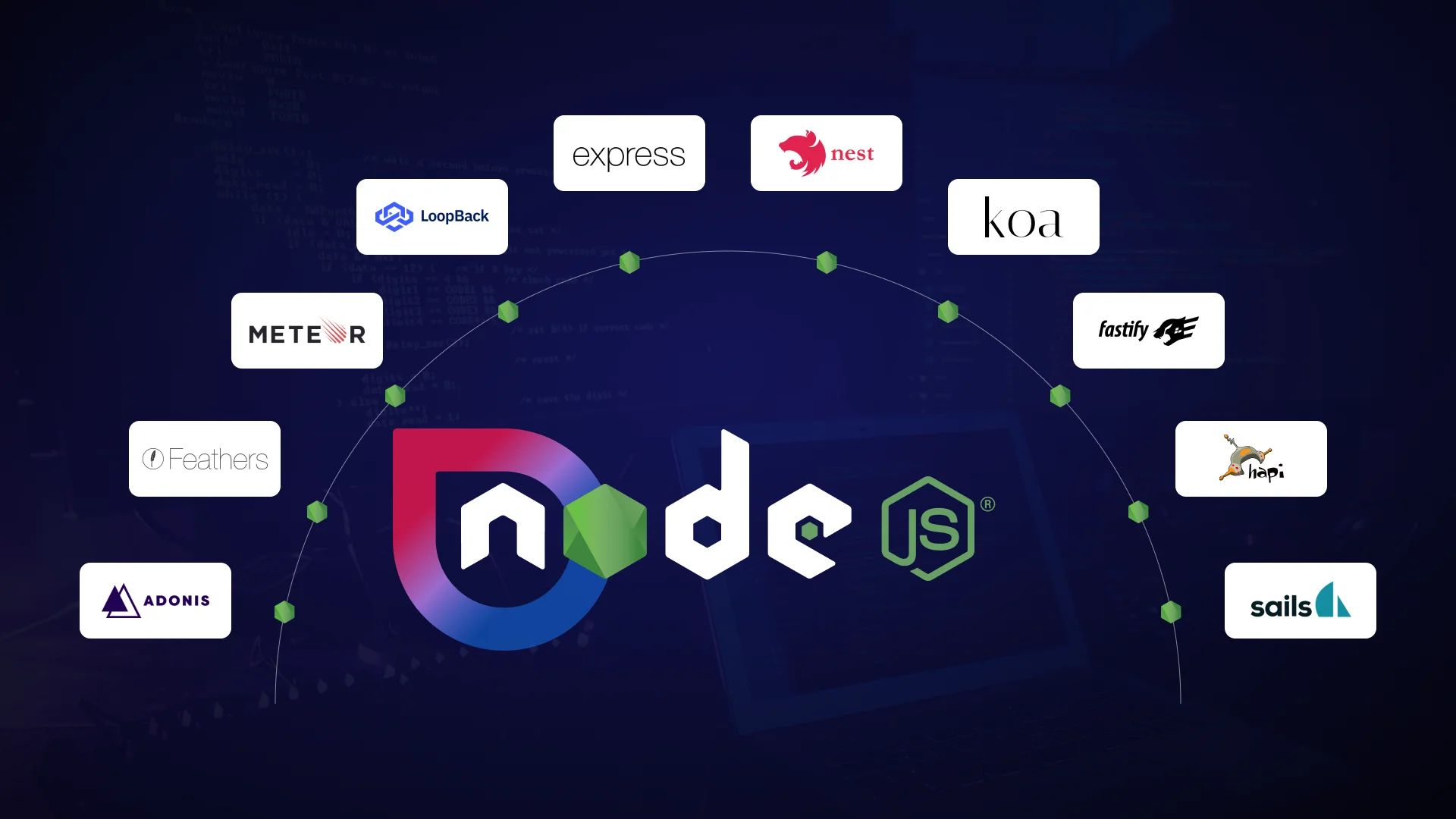The Comparison Between Node.js and Golang: Which One to Choose?
- Web
- September 10, 2018
Today the mobile and web developers have a wide spectrum of choices when it comes to choosing advanced programming languages. The selection of the languages is not only viable for the front-end developers but the backend developers as well.
Speaking of that, we are here to talk about two of the most powerful backend technologies: Node.js and Golang.
There’s a lot more confusion about which language should be chosen; which language offers you the best results, cuts down your time, and so on. With that said, why don’t we have a comprehensive comparison of both these languages?
Let’s get cracking with the basics first!
What is Node.js?
Node.js is a server-side runtime environment that is built to fulfill the requirements of highly scalable network applications. Node.js is divided into 2 parts: clustered Node.js and non-cluster Node.js.
Talking about its popularity: Node.js is used by at least 30 million websites as of today’s date. Moreover, it is considered to be one of the 6 most commonly used programming and markup languages.

It is based upon Google Chrome’s V8 JavaScript engine and it consists of innumerable libraries that help in the development of web applications. It also cuts down the development cost by 58%.
The highlight of Node is it’s built on JavaScript which makes it quite simpler for developers to execute both server-side and client-side coding by using one language only.
Well, to top it all, Node.js is being used by the top companies like Netflix, Linkedin, Trello, PayPal, Medium, and many more.
Top Benefits of Node.js
- Node.js can be used in backend enhancement and it also boosts the frontend capabilities without having to do more hustle.
- Node.js is especially known for its capability because it’s known to be the most favourable platform to build scalable applications.
- It can also go well with a microservice architecture by allowing quick integration of new elements of your app.
- Node.js has got a dynamic community with active code posted on Github.
- Node.js can improve applications’ performance by 50%.
Disadvantages of Node.js
- Node.js sometimes does not support heavy computational tasks.
- Its recurrent, backward-incompatible API changes lead to quite extensive code alterations.
- If you are using Node.js, tackling relational databases causes a lot of hurdles.
- If you are beginning with Node.js without first going into Javascript, you may suffer conceptual issues.
When Should Node.js Be Used?
Node.js is the perfect platform for server-side applications that have to deal with multiple requests without putting much burden on node. If you are supposed to develop applications like online games, online messenger, and video chat applications then node should be the top choice for you.
What is Golang?
Golang, which is also known as Go, is an open-source, statistically typed programming language developed by Google. There are 1.1 million developers who use Go as their primary language.

Just like Node js, it is also a cross-platform, multipurpose programming language that is highly recommended for web development.
Go is also a structural language that comprises the security and performance benefits of C/C++. It is built on the principle of Python for speed of development due to which it is one of the most preferred programming languages all around the world.
Golang is a structurally robust, and efficient concurrent programming language and is mainly known for its garbage collection, memory safety, and dynamic interfaces. Its dynamic features are the reason why it is being used on a high note.
Top Benefits of Golang
- Golang has got a high standard library and efficient packages that help you with simple to use in-built functionalities to work on primitive types.
- Golang’s standard library also offers testing support that removes other dependencies.
- Go makes it easier to manage memory with its garbage collection.
- It is quite an updated programming language and has a rising skill pool.
- As Golang has pretty simple-to-use syntax, it is easier for the developers to learn and adopt it.
Some Disadvantages of Golang
- Go does not support all the generic functions.
- Go does not have tunable GC as Java.
- As the language is relatively new in the market, the need to hire developers is not as frequent as others.
When Should Golang Be Used?
Golang is an ideal platform for the applications that require multithreaded tasks. Also, Golang is the top choice to develop backend applications. Apart from this, as golang is a compiled language, the code that is written is directly translated into the format that the processor understands.
Node.js or Golang: Which One is Better?
Well, if talking about considering a better language among both of these 2 then it will raise quite a logical argument. Node JS has got a pretty expensive space in the market.
Whereas Golang is also topping its game leaving JavaScript behind. So, in a nutshell, both these languages have been gaining popularity as per their characteristics and the benefits they have got to offer. It mainly depends on your requirements as to the languages that are most likely to be helpful for you.
Golang vs Node.js: A Detailed Comparison
Here begins the detailed comparison between these 2 powerful programming languages:

1. Comparison based on the Level of Maturity
We will first compare Golang and Node.js based on their maturity level. When we talk about Go, it is adequately mature and robust although introduced in 2009. On the other hand, Node.js is also showing the same maturity and enjoys the support of the larger audience.
But the problem lies with the changing API for which the developers may face issues while writing the Node modules.
2. Assessing on the Performance Basis
Node.js basically a JavaScript runtime integrated language and is usually on the slower side when it comes to comparison with Go, the improved compiled language. In fact, Golang performs much better than Node.js, which cannot offer the same optimum service as CPU-bound memory due to JavaScript.
So, Go outperforms Node.js on this front but having said that the reality is that both offer more or less the same kinds of server results in the end.
3. The Concurrency
The major difference between Node.js and the Go is that while the former utilizes the event called mechanism, the latter is making use of the co-routines known as Goroutines. The mechanism is based on a single thread and this where Node.js lacks behind the Go language.
But, it is offering the async generator support known as the semi-co-routines. On the contrary, the Go language makes use of a lightweight thread that is managed by the Go runtime. The interactions between the Goroutines become much easier due to the channels.
4. Who is More Scalable
Like Concurrency, the Go language is able to win over Node.js in scalability. As such the Node.js is not regarded as suitable for large projects due to weaker parallel process.
However, again the Goroutines prove to be a major asset for the Golang as it provides multiple threads to be performed in one go along with the parallel tasks.
5. Dealing with the Pitfalls
When in this case, Node.js is a clear winner as makes use of the catch mechanism where it becomes much easier to detect where the error is. Moreover, many of the developers are also familiar with this process of error checking as it is a more common and conventional method.
Now talking about Golang, it uses an explicit error checking method and the troubleshooting becomes more a complicated task. The program is on the run and the error codes are returned later. But it may be said it provides more consistency and you can get a clear application.
6. Front-end & Backend
The Go code can be run using the goper.js in the browser. But the fact is that most of the developers give priority to the JavaScript front-end programming languages for client-side development.
Go is preferred more as the backend language and it offers high performance for developing the cocurrent applications. As far as Node.js is concerned, you won’t find any problems whatsoever in switching to the client-side development.
7. Ease of Learning
You must be aware that JavaScript is indeed the most widely implemented coding and used languages by worldwide developers. So, if you have good sound knowledge of the programming language, Node.js would be an easy rope to climb with.
But even if you are a fresher, who has just entered into the arena, there is enough help around in the form of a large community ready to share their experience and other resources as well.
On the other hand, Go is not a very familiar programming language as compared to Node.js. So, you have to get ready for learning a new language, which has its own set of rules and Goroutines with static typing proving to a difficult learning curve.
8. Availability of Tools
Since Node.js more popular than Golang and used by more developers, it certainly offers an enhanced tooling facility with a wide variety of tools. It includes a number of tutorial videos, several articles, journals, platforms, and much more for the extended support of the new developers.
Apart from that, as told earlier, it enjoys the support of a large community of experienced developers who keep on improving the environment.
Well, Go does not offer you the same kind of benefit as Node.js as it is still new and in its young days. It does not have the advantage of a huge community and the number of developers is also less due to the difficulty of the language.
You also won’t find adequate resources of help for getting access to the language. Moreover, it offers no support for the front-end expect for the presence of Gopherjs, whereas Node.js makes you comfortable in that position.
9. Number of Developers
The recent stats indicate that JavaScript is certainly the most preferred language in the world and undisputedly popular among developers. The figures indicate that 62.1% of developers are using it globally as compared to 4.9% of Golang users.
But this number is surely going to rise in the time to come and definitely Go has a bright future ahead. So, finding an adept Node.js development team would be much easier than searching an expert Go team.
10. Ease of Implementing the Blockchain
Blockchain is the buzzword these days with the technology scaling to new heights. Many companies are interested in integrating modern technology as it is proximately related to cryptocurrency development.
However, when we talk of implementing the blockchain using Go, it is much more simplified than incorporating the technology with Node.js. So, Golang is highly recommended.
Check our infographic : Golang Vs Node.js: Which One to Choose?
The Final Words
We have seen a tough competition battle between the two popular backend development: Node.js and Golang. Both have their pros and cons and certainly, it is a daunting task to choose one. But you can definitely select it according to your specific requirements and go ahead with the project.
On the basis of maturity and performance, Golang is proving superior while Node.js is ousting it on ease of learning, development tools, and front-end development.
FAQs on Node.js vs Golang
Node.js holds a comprehensive space in the IT sector and also has a pretty frequent availability of developers to be hired whereas Golang is in the process of expansion. Node.js is known to be the most popular in the US. So, in the near future, the chance of Node.js being replaced by Golang is pretty low.
You can build a web server using Golang itself and are a lot more efficient than 3rd party web servers. Golang is a compiled language so the web applications that are created using Golang can work in any environment whether it is Cloud or any operating system.
Node.js is easily employed as a server-side proxy where it can manage a huge amount of simultaneous connections in a non-blocking manner. Node. js is also asynchronous and single-threaded.














